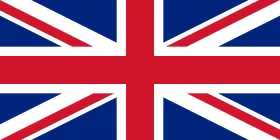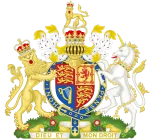United Kingdom

Geographical Location of Great Britain
The United Kingdom of Great Britain and Northern Ireland is a union consisting of England, Wales, Northern Ireland and Scotland. Most of Wales and Scotland are highlands with valleys, lakes and narrow fjords. England and Northern Ireland consist of flat landscapes with elongated hills. The British Isles are located on the European continental shelf with shallow waters suitable for fishing.
The climate is temperate, which means it is characterized by variability and four distinct seasons, with high rainfall throughout the year. The temperature is stabilized by the warm Gulf Stream from Mexico, which flows along the western coast of the islands. It is warmer and drier here than in the southeastern part, where the climate is influenced by proximity to the continent. This is the coldest and wettest climate in the north.
Air quality in several British cities is very poor. Pesticides and heavy metals have polluted the soil. In addition, there has been a decline in marine and coastal habitats for plant and animal species due to housing, tourism and industrial development.
Brief History of United Kingdom
The territories that are today United Kingdom were sacked and conquered by the Romans, Normans, Vikings and Saxons in the early centuries. Before this, the islands were inhabited by Celts and other peoples. Around 1100 the kingdoms of England and Scotland were founded. They fought many battles until they united to form the United Kingdom in 1707. Wales had already been in union with England since 1536. The kingdom became a leading great power, continuing the imperialism that England had practiced for over a hundred years.
Over the next two centuries, the British conquered vast territories around the world, building the largest empire that had ever existed. The British Empire long controlled a quarter of the earth's surface. Part of the reason for its long-lasting success was the technological advantage the British gained from the Industrial Revolution of the 18th and 19th centuries.
Ireland became part of the Union in 1801. In 1921, United Kingdom accepted self-government for Ireland, which had long desired independence. This led to the division of Ireland in two, with Northern Ireland remaining in the Union. During the First and Second World Wars, Britain fought against Germany, and much of the empire was subsequently transformed into independent states. The UK became a member of the EU in 1973 for economic reasons, but left the union in 2020 following a referendum on the issue in 2016.
Society and Politics of United Kingdom
The United Kingdom is a monarchy with a parliamentary form of government. This means that the British monarch is formally the head of state, but executive power lies with the prime minister and the government. The British monarch is also the head of state in many former British colonies. The legislative branch - parliament - consists of a lower and an upper house. There are representatives of various parties, mainly the Conservative Party and the Labor Party, which are the two dominant parties in the country. The leader of the party with a majority in the lower house becomes prime minister and can form the government.
The UK has great influence on the international stage and has a long tradition of cooperation with the United States and its former colonies (Commonwealth). The country has a very multicultural society and is one of the most populous countries in Europe. There are large social differences among the population, but the welfare state promotes free health care for all. The UK became a member of the UN in 1945 and is one of five permanent members of the UN Security Council.
Economy and Trade of United Kingdom
From the Industrial Revolution to the post-war period, Britain was one of the world's leading industrial countries. The UK is still one of the world's ten largest economies. In recent decades, the industry has given way to financial companies, insurance companies, investment companies and tourism. The country has an extensive oil industry but is dependent on oil imports to meet its needs.
Machinery, transport equipment, chemicals, pharmaceuticals, petroleum and other fuels, and medical and technical equipment are the most important exports to the UK. Most trade occurs with other European countries, especially EU members such as Germany and the Netherlands. The US is also an important trading partner.
Due to leaving the EU, the UK has had to negotiate new trade agreements with the EU and other countries with which it previously had agreements through the EU. Economic cooperation with the EU is now significantly less than when the UK was a member state.
British Cuisine and Culinary Traditions of United Kingdom
British cuisine is one of the oldest national cuisines in the world. Old traditional British cuisine is simple and nutritious, but over time the cuisine has borrowed many culinary traditions from around the world, which has greatly diversified it. British cuisine includes recipes for dishes from several national cuisines that are part of the United Kingdom - Scottish, Irish, Welsh and English cuisine. https://kashevar.com/en/recipes/britain In addition, during the period of colonization, British cuisine was significantly influenced by both Indian cuisine and the national cuisines of many other countries that were once colonies of Great Britain. Today, British cuisine is one of the leading national cuisines in the world and delights its admirers with a wide variety of recipes.


Basic Information About the United Kingdom
- Full name - United Kingdom of Great Britain and Northern Ireland
- Capital - London
- Language - English, Scottish, Welsh, Gaelic, Scots Gaelic and Cornish
- Population - 68,138,484
- Form of government - constitutional monarchy
- Area - 243,610 km2
- Currency - British pound






